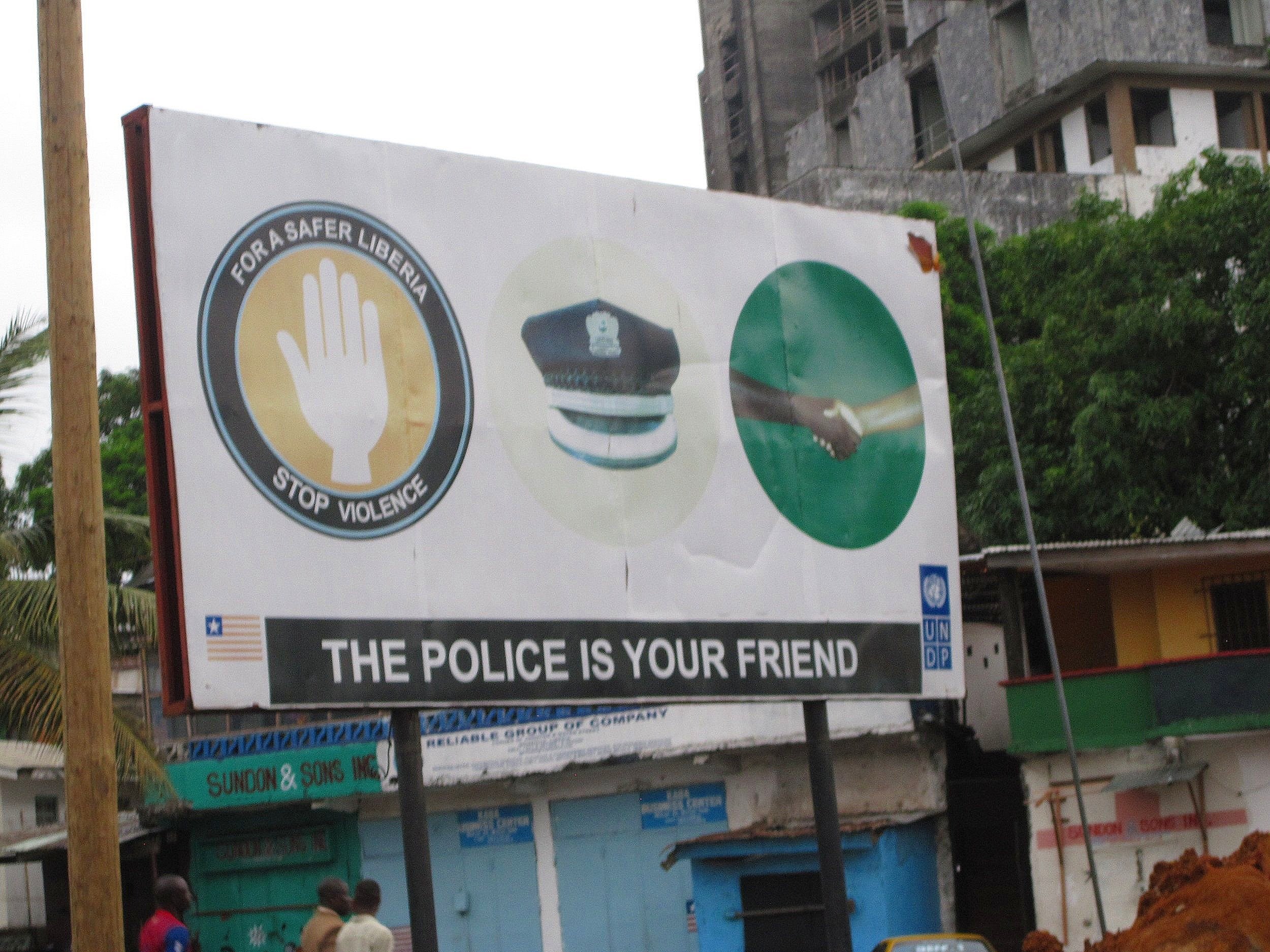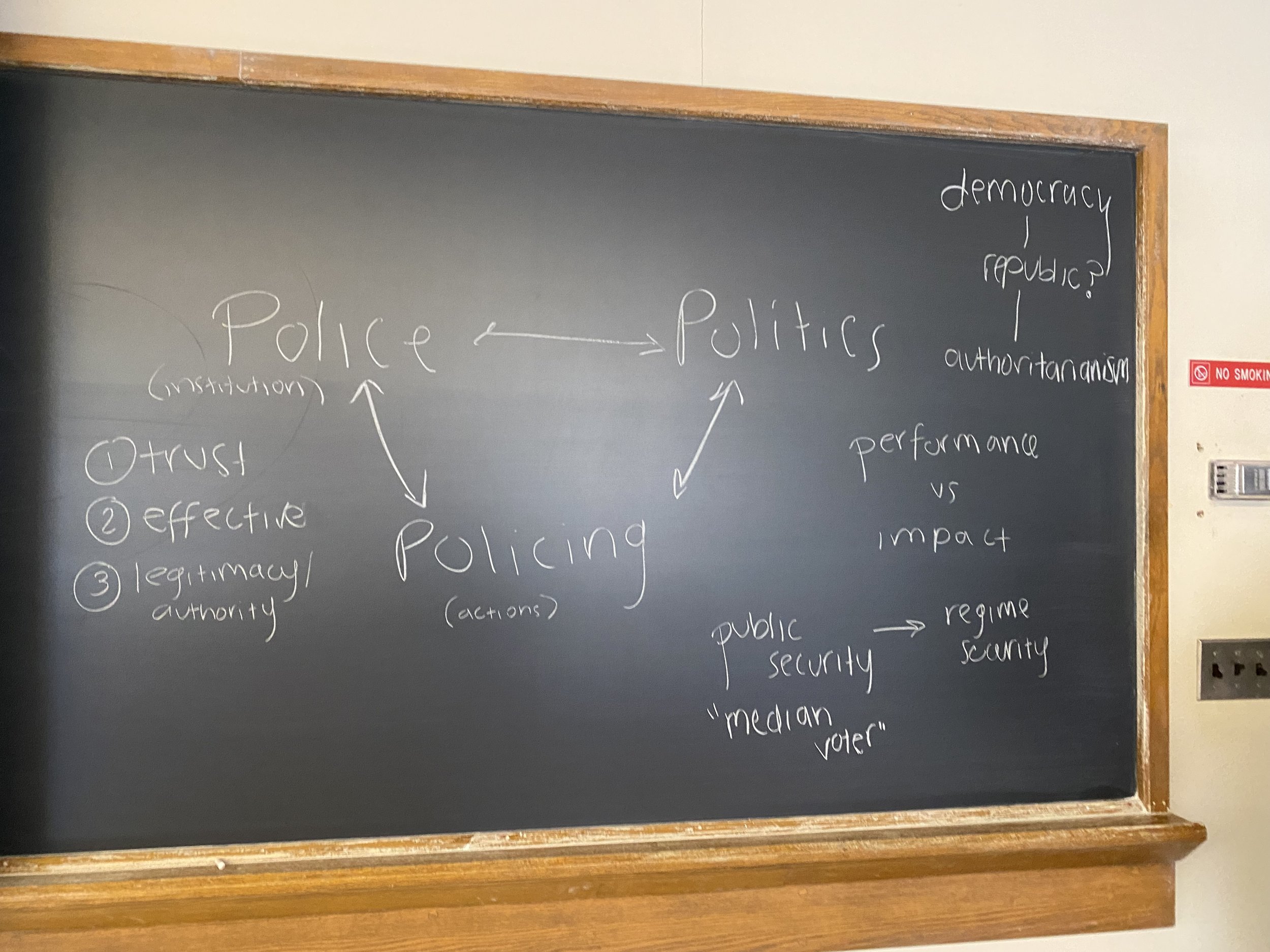
NSF CAREER: The Domestic and International Politics of Global Police Violence
NSF CAREER Summary
Ubiquitous state violence perpetrated by police officers in the form of protest violence, gender-based violence, torture, and extrajudicial killing presents an urgent, global challenge. While state violence may be legitimate in some instances, the negative impacts of excessive/illegitimate police violence on societies are numerous and consequential: it exacerbates health outcomes, diminishes the quality of governance, and increases the probability of civil conflict. The overarching goal of the PI’s research is to explain police violence using a political framework. Consequently, the PI’s five-year CAREER research agenda will achieve the following objectives: 1) develop original theory on (excessive and/or illegitimate) police violence; 2) gather essential cross-national data on police violence, police autonomy, and international police assistance; 3) collect the largest, original survey data of police personnel around the world; and 4) implement a multi-faceted educational program that will train undergraduate students and masters students in evidence-based strategies for mitigating police violence.
Research Questions and Data
Under what conditions do police engage in illegitimate and/or excessive police violence?
Under what conditions do individual police officers’ beliefs about the use of violence change?
Under what conditions do police forces engage in institutional reforms?
Under what conditions do countries accept international police assistance? And, what are the effects of this assistance?
Datasets
-
International Police Reforms
We collected data on four institutional reforms to policing: the creation of new operational units such as SWAT teams, the creation of new police academies, gender reforms within policing, and civilian oversight mechanisms for policing. These range is from 1988-2019. The data were coded by undergraduate students and cross-checked by the PI and co-authors. Currently, the data are being used to write papers.
-
International Police Assistance
We collected data on U.S. and United Nations police assistance programs globally from 1970 -2019. We also collected data on police assistance from China and Sweden. Currently, the data are being used to write papers. One paper is currently available.
-
Global Survey of Police Personnel
As a part of the Gender and Security Sector Lab, we are surveying the personnel of police forces and militaries from around the world. We have collected police personnel survey data from Zambia, Jordan, Senegal, and are currently conducting surveys in other countries. Estimated completion: 2026
-
Police Violence
Using existing datasets, such as ACLED and the Mass Mobilization dataset, we are coding police-specific violence. Additionally, we will scrape news articles from major international newspapers to collect data on reports of police violence in the media. Estimated completion: 2027.
-
Police Autonomy from Politics Scale
Using data collected on police forces around the world, we will develop a scale that measures the degree to which the police have autonomy from politics along different dimensions such as institutional, procedural, technical, professional and operational autonomy. Estimated completion: 2027.

Teaching
-

Politics of Policing
The undergraduate course explores the conditions under which the police are political. This means understanding when and how the police engage in police reforms as well as when and why they perpetrate excessive violence toward the population. The course bridges the local with the international by engaging in community based projects that develop policy reforms for Ithaca as well as for policing globally.
-

Civilian-Policing Relations Certificate Program
Coming soon
-

Undergraduate Research Assistantships
Through the Gender and Security Sector Lab, undergraduate research assistants will be hired to create profiles of different country’s police agencies. These will be used to code the datasets mentioned above. The undergraduates will also be trained in STATA and R so that they can do basic data cleaning and analysis of the police personnel data. Undergrads interested in being an RA should fill out an application and email the GSS lab (gsslab@cornell.edu)